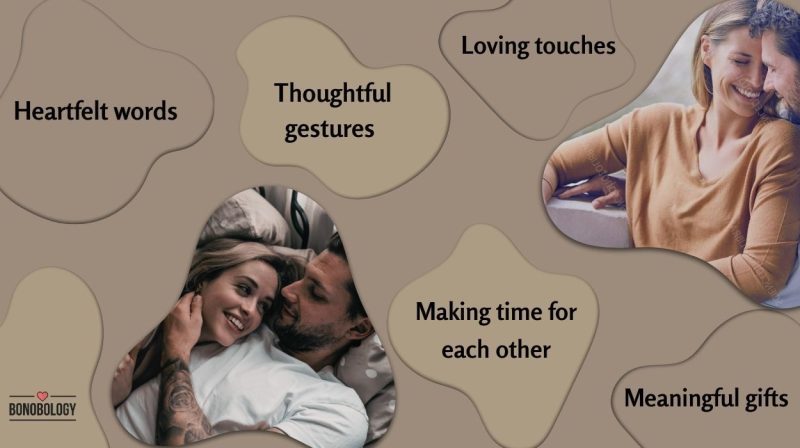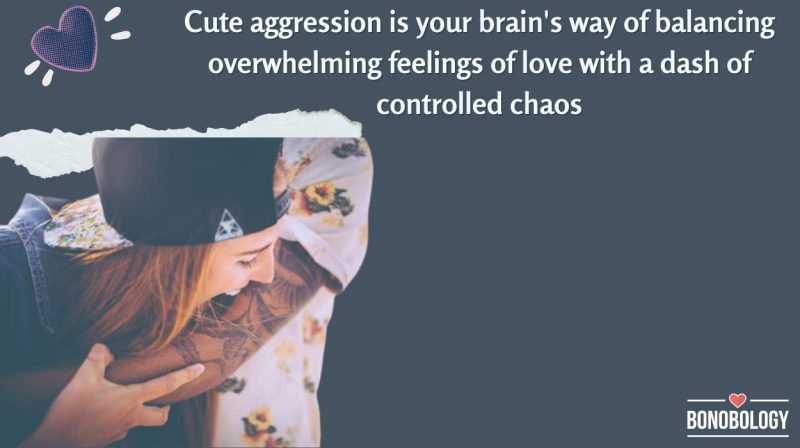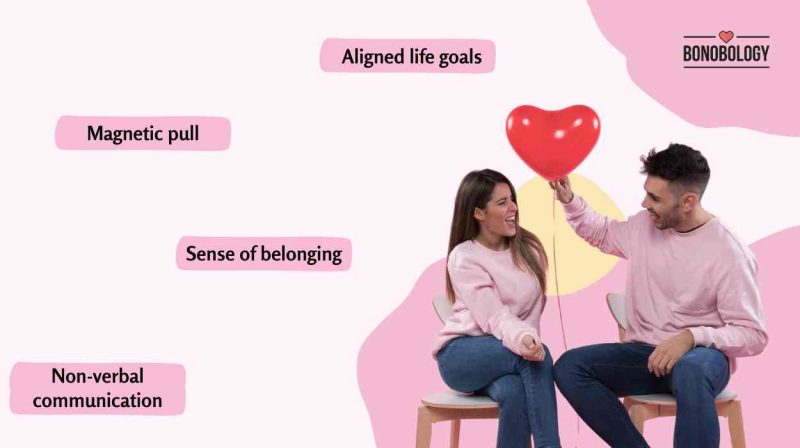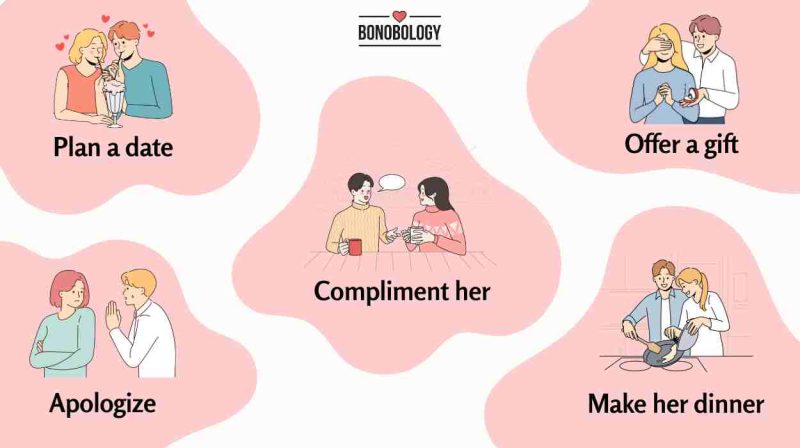Have you ever asked this question – why do people fall in love? It is tempting to believe that love happens organically when someone triggers certain hormones within you. But beyond the oxytocin and other chemicals that apparently play a role in your love life, there are some deep reasons why some people are more special than others – it’s simply because they fulfill your emotional needs in a relationship.
As most people would agree, lust may be physical but love is purely emotional. Perhaps that’s the reason why the season of love never fades despite what cynics and naysayers warn us about. Think about it. Do rising divorce cases and bitter breakups deter people from falling in love again… and again? No. This is purely because there are different emotional needs in a relationship that motivate us to never step off from the journey of love.
What Are The 10 Critical Emotional Needs In A Relationship?
Table of Contents
Mark Manson, the author of Emotional Needs in Relationships, says that our success at romance as adults depends a lot on our emotional map in childhood. Yes, how you were raised affects relationships. There are varying degrees of unmet needs in a relationship, be it with parents or siblings, and each of these experiences leaves its mark as a series of micro-traumas that shape and define us.
The nature and magnitude of these traumas imprint themselves onto our unconscious and they define how we experience love, intimacy and sex, adds Manson. Therefore, even though the emotional needs of a man might be hugely different from the emotional needs of a woman, at the core, happiness is defined by how these needs are met or dealt with.
The choices we make about who we love, marry or get separated from are determined by meeting emotional needs in a relationship or lack thereof. Emotions are basically feelings and the way our relationships make us FEEL from within determines their success. So what are the 10 top emotional needs in a relationship that we are all searching for? Here’s a tentative list and some tips on what to do to ensure your partner feels fulfilled in a relationship:
Related Reading: 15 Signs Of Relationship Compatibility Between You And Your Partner
1. Care
“A simple ‘I love you’ means more than money,” said jazz legend Frank Sinatra in the classic song Tell Her. Well, there is one phrase that is even better than that. It is “I care for you”.
The desire to be cared for is perhaps at the heart of all emotional needs in a relationship. When we commit to someone, we are essentially connecting with them at a deep level where the element of care reigns supreme. You want to be involved in every aspect of their lives.
In many ways, the word ‘care’ denotes a certain tenderness to the relationship. It means your partner’s emotions matter to you, their mood affects you. When a relationship starts to fray, you stop caring and that’s the beginning of the end.
How to care: Be there for your partner when they need you the most, especially during their low phase.
2. Listening
Frank and open communication is the key to a good relationship but communication does not just mean talking well. Listening to what your partner has to say is also equally important. “I was in a relationship with a guy for five years,” says Divya Nair, a banker. “But it was only later I realized that he was doing all the talking and I was just there to listen to him. He said he loved me but I felt stifled because I just wasn’t heard.”

One of the most common unmet needs in a relationship is not being heard by one’s partner. Communication is a two-way road and you need to be prepared to listen as much as you are willing to talk. That’s the key to improving communication in a relationship.
How to listen: Let your partner finish what they have to say, pause and reflect before responding. It shows that you value their words.
3. Acceptance
Being loved and accepted are two different things. Love does not mean you expect your partner to change according to your wishes. It means you accept them with their flaws.
Vandana Shah, a Mumbai-based divorce lawyer, went through a horrific divorce herself years ago and one of the main reasons why she separated was due to lack of acceptance by her husband. “My husband and in-laws did not want an independent woman with a mind of her own, and that’s where the harassment started,” she says.
“I could not change myself, I had to be me. No wonder the marriage was doomed,” adds Vandana. Complete acceptance of one’s persona, lifestyle, values and habits are one of the prime emotional needs in a relationship. Unless you make your partner feel accepted for the way they are, they won’t feel that they belong in your life.
How to accept: Introduce your partner to your family and friends, plan shared activities, discuss your life’s goals and seek their advice when needed
4. Appreciation
Self-help books proclaim we need not depend on anyone for validation and that self-love is the best form of love. Fair enough. But love means making your special someone feel truly special. That entails showing appreciation toward your spouse or partner often and whole-heartedly.
You can’t fulfill your partner’s emotional needs in a relationship if you don’t appreciate what they bring to the table. We all crave acknowledgement for our successes, and if you fail to get that adequately from your partner adequately, it leaves a bitter aftertaste.
Related Reading: How To Use Words Of Affirmation As A Love Language?
Malini Bhatia, founder and CEO of Marriage.com, says in an essay that appreciation is one of the three A’s in any relationship (the other two being acknowledgement and acceptance). “As humans, we constantly crave positive attention and appreciating someone is the best way to go about it.”
How to appreciate: Learn to pay genuine compliments, avoid unnecessary criticism or mean remarks and appreciate a job well done at the office or home.
5. Companionship
Sex or even love is perhaps easy to find but it is tougher to find a good companion – someone who will be there through the highs and lows. For example, in a marriage, having a husband who can be a true companion is one of the key emotional needs of a wife; the support makes her strong from within.
Similarly, a man desires that the woman he marries becomes his friend and stands by him during his good and bad days. Physical attraction may be important during the initial stages of a relationship but as the years progress, it’s the companionship that matters.
For instance, Hollywood couple Kurt Russell and Goldie Hawn have been together since 1983, have one son and raised a child from her previous marriage. “We have done perfectly without marrying,” stated Goldie in many interviews. It’s a wonderful example of companionship.
How to be a good companion: Participate in each other’s lives, share common interests and think of long-term goals as a couple.
6. Security
Security is closely related to trust as it is one of the most important emotional needs in a relationship. The lack of security is also one of the main reasons why relationships break. When you are committed to a person, you expect him or her to make you feel wanted and secure. A loyal relationship is invariably a secure and wholesome space for both partners.
Back in the 90s, Hugh Grant and Elizabeth Hurley were the celebrity golden couple. Everyone thought they were perfect, but Hugh’s infidelity put an end to that fairytale. There is no point in being a great lover if your partner has to constantly worry about your loyalty to him or her. Also, they should feel safe enough to share their deepest vulnerabilities. A healthy and happy relationship equals emotional and physical security.
How to ensure security: Respect your partner’s boundaries, be loyal to them and hold no secrets.
7. Honesty
Among the different emotional needs in a relationship, honesty ranks high. Honesty is not just related to situations where a couple shares their feelings, opinions, thoughts and likes and dislikes but it’s also about opening up about your past, present and future.
Divya, the banker who we mentioned above, recalls the lies she was constantly subjected to in her relationship. “Since it was only my partner who did all the talking, I had no way to verify whether his stories were true or just complete fabrications to cover up his tracks. As it turned out, many of them weren’t.”
The person you get into a relationship with deserves to know everything that may affect your life together. Unfortunately, people tend to put their best foot forward during the dating period and repent later when things don’t turn out the way they expected.
How to be honest: Frank conversations without judgment is what is needed. And sometimes be prepared to listen to unpleasant truths too.

8. Respect
In most traditional patriarchal societies, one of the most ignored emotional needs of a wife is the need to be respected. Marriage should ideally be a relationship of equal but often one partner has the upper hand over the other.
It’s immensely hard for a relationship to succeed if one partner feels disrespected or undervalued over the other. Casually spoken rude words, ignoring the spouse’s need to be heard, shutting them down are all signs of disrespect that hurt a person’s self-esteem and shatter their confidence.
As Vandana notes, “Whatever I did in my marriage wasn’t enough. My in-laws just didn’t want an educated daughter-in-law and my husband never stood up for me. It hurt my self-respect to no end.”
How to respect your partner: Involve your partner in decision-making. Learn to respectfully disagree if your views don’t match. Never down-talk your partner, especially in front of others.
9. Trust and understanding
When you fall in love, your partner becomes your friend, confidant and support system. Understanding and trust are, therefore, the key for any relationship to blossom. Being understood by your partner means they align with your thoughts, desires and vulnerabilities.
Couples who are perfectly in sync may have differences but their ability to understand each other’s emotional needs in a relationship helps them overcome any challenge. A relationship stops evolving when you fail to understand each other or find little in common with each other.
Related Reading: Top 9 Tips To Build Trust In Relationships
This does not happen overnight, which is why it is essential to invest time and effort in developing a relationship. Meeting emotional needs in a relationship such as trust and understanding requires patience and a willingness to work hard on yourself as well as your partner.
How to understand your partner better: Learn to put yourself in his or her shoes and look at a situation from their perspective. Accept differences.
10. Being valued
Valuing your partner means recognizing what they are doing for you and what they bring to the relationship. One of the most common mistakes that couples make is to take each other for granted, especially after they have been together for years.
When you value your partner, you will take cognizance of their emotional, physical and spiritual needs and make every effort to fulfill them. This naturally leads to building a strong foundation for any relationship.
Being valued also means building empathy for your partner’s different emotional needs in a relationship. You should have the ability to think from their perspective which will aid you to become more understanding and kind.
How to value your partner: Recognize and respect your partner. Be aware of and express gratitude for all that s/he does for you.
For a healthy, successful relationship, couples need to identify their emotional needs in the relationship and commit to doing their best to provide each other with these needs. When you make this a habit, you will find that anger, frustration and any other negative feeling get automatically replaced with love, romance and respect.
6 Steps To Take If You Are Feeling Trapped In A Relationship
10 Things To Do If You Are Feeling Unappreciated In Your Relationship
Your contribution does not constitute a charitable donation. It will allow Bonobology to continue bringing you new and up-to-date information in our pursuit of helping anyone in the world to learn how to do anything.






















